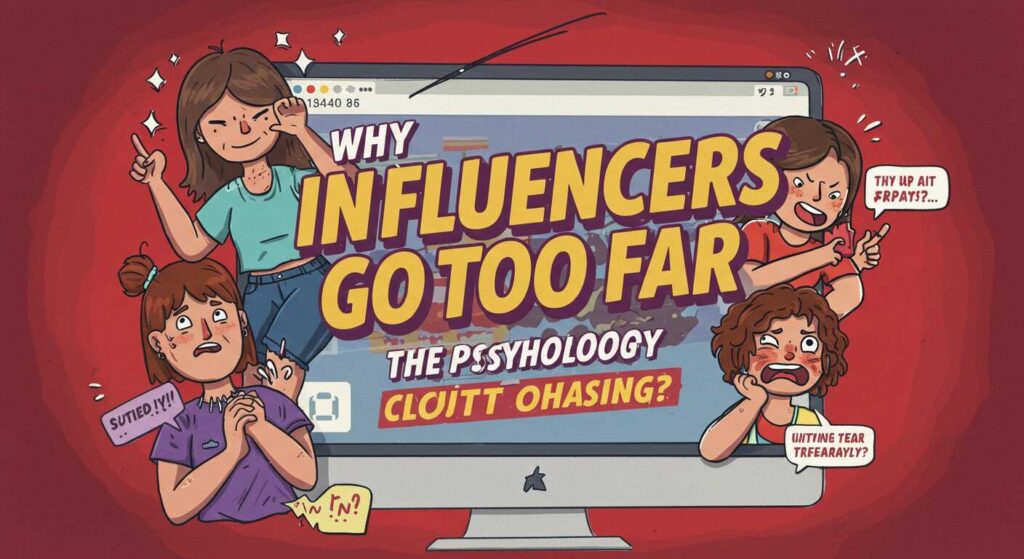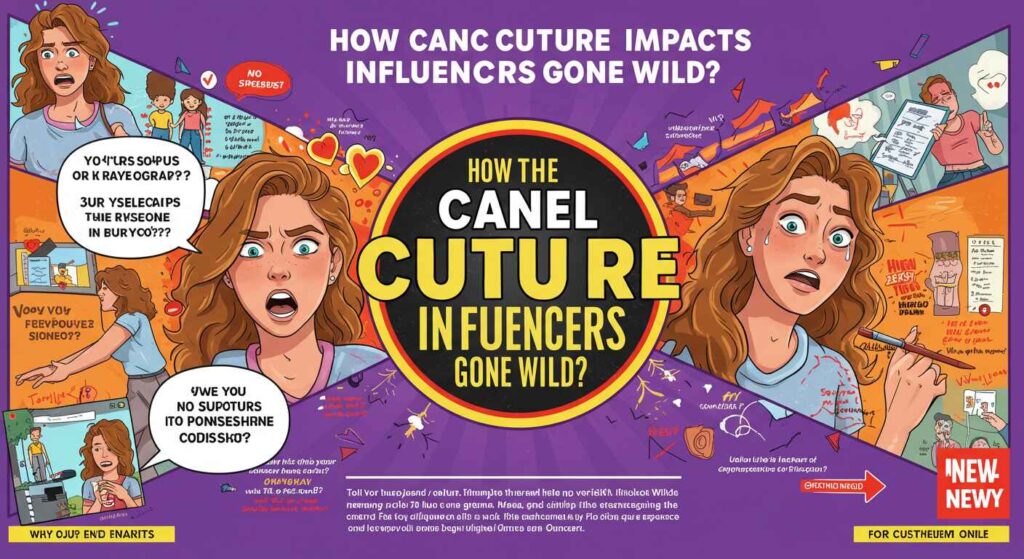In today’s digital-first world, social media influencers have become modern-day celebrities. With millions of followers and the power to shape culture, they often face immense pressure to stay relevant. But in this constant race for attention, many push boundaries, sometimes too far. This phenomenon, often called clout chasing, explains why influencers risk reputation, partnerships, and even their mental health just to grab a few viral moments.
This article explores the psychology of clout chasing, why influencers go beyond safe limits, and what audiences, brands, and creators can learn from these extreme behaviors.
What Is Clout Chasing in Social Media?
“Clout” refers to influence, power, or social standing. In digital culture, clout chasing means performing bold, risky, or controversial actions for the sake of visibility, likes, or followers.
Unlike organic growth, where creators earn respect through consistent value, clout chasing is often about shock value. For example:
- A YouTuber staging dangerous stunts.
- A TikToker creating offensive content for virality.
- An Instagram star flaunting a luxury lifestyle far beyond reality.
While these tactics may temporarily skyrocket attention, they come with long-term risks.
The Psychology Behind Clout Chasing
1. Attention-Seeking & Validation
Likes, comments, and shares trigger dopamine — the brain’s reward system. According to the American Psychological Association, validation from others can reinforce risky behaviors, pushing influencers to create even more extreme content.
2. Fear of Missing Out (FOMO)
Social platforms thrive on trends. When one creator goes viral, others feel the pressure to replicate — or outdo — the act. FOMO drives influencers to chase relevance, even if it means going overboard.
3. Social Comparison Theory
As outlined in Pew Research Center studies, young adults compare their lives more on social media than ever before. For influencers, constant comparison with peers fuels a cycle of risk-taking to appear more exciting, wealthy, or daring.
4. Algorithm Rewards
Platforms like TikTok and Instagram prioritize engagement. Controversial or shocking content often gains higher reach, unintentionally rewarding risky behavior. The MIT Technology Review highlights how algorithmic design can encourage influencers to push boundaries.
Why Influencers Push Boundaries Too Far
- Escalation Effect: Once followers get used to bold stunts, influencers feel the need to “top” their previous actions.
- Parasocial Relationships: Fans expect constant entertainment, making influencers feel pressure to deliver.
- Monetization Pressures: Sponsorships and ad revenue often depend on engagement numbers, incentivizing risk-taking.
- Case Studies:
- Logan Paul’s controversial video led to backlash and lost deals.
- TikTok challenges like the “Milk Crate Challenge” caused injuries but went viral.
The Consequences of Extreme Clout Chasing
Public Backlash & Cancel Culture
Extreme content can lead to backlash, boycotts, and even permanent damage to reputation.
Loss of Brand Partnerships
Brands avoid association with scandals. A single mistake can cost influencers major sponsorships.
Legal & Ethical Risks
Unethical actions — copyright violations, defamation, or dangerous stunts — can bring lawsuits.
Mental Health Struggles
The World Health Organization has raised concerns about the mental health effects of online fame, including anxiety, burnout, and depression.
How Audiences and Brands Can Respond
- Fans’ Role: Stop rewarding toxic behaviors with engagement.
- Brands’ Role: Vet influencers carefully before partnerships.
- Positive Examples: Creators like Lilly Singh and MrBeast push boundaries in creative, positive ways that inspire rather than harm.
Can Clout Chasing Be Healthy?
Not all clout chasing is harmful. When influencers use creativity to grab attention while staying ethical — like launching social good campaigns or creating inspiring challenges — clout chasing can spark positive cultural shifts.
The future of influencer culture will depend on authenticity, transparency, and responsible engagement.
Conclusion
Clout chasing explains why influencers often go too far in pursuit of fame. From attention-seeking psychology to algorithm-driven rewards, the cycle is reinforced by both fans and platforms. While the consequences can be damaging — backlash, legal risks, mental health issues — influencers who balance ambition with responsibility can thrive sustainably.
For audiences and brands alike, the lesson is clear: reward authenticity, not reckless attention-seeking.
Discover more in our full guide to Influencers Gone Wild to understand the broader cultural impact of viral influencer scandals.



